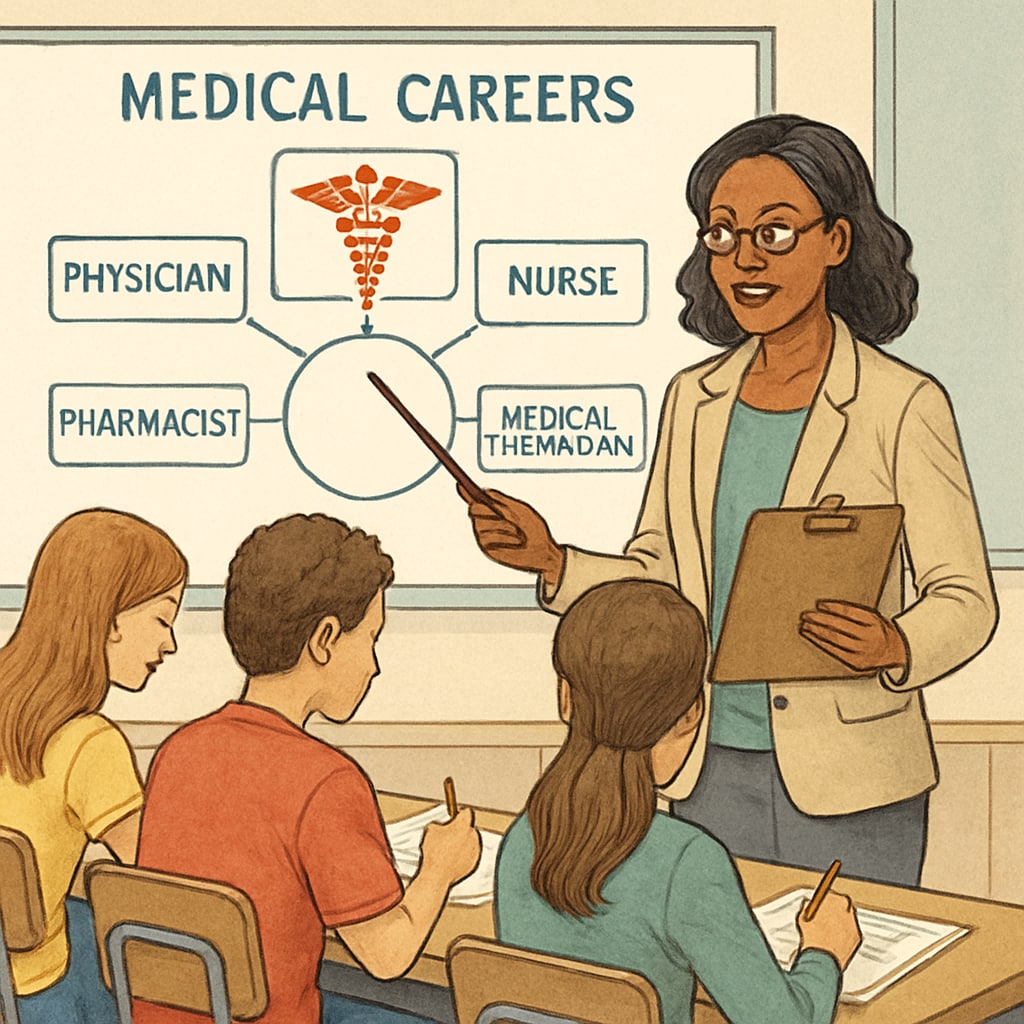The journey to becoming a medical professional is long and challenging, requiring careful planning and early guidance. Introducing career counseling during the K12 years can be transformative for students with aspirations in medicine. By incorporating doctor interviews, career consultations, and structured medical education, students can gain critical insights into the profession and take steps to align their education with their future goals.
The Role of Early Career Counseling in Medicine
Effective career counseling during K12 education serves as a foundation for students to explore their interests, strengths, and values. In the case of medicine, this guidance is particularly crucial due to the demanding nature of medical training and practice. Counselors can help students understand the prerequisites for medical school, introduce them to different specializations, and guide them through the decision-making process.
For example, career advisors can organize career days or workshops where students interact with practicing physicians. These sessions can clarify misconceptions, provide real-world insights, and inspire young minds to pursue their medical aspirations with clarity and confidence.

Doctor Interviews: Bridging the Gap Between Aspiration and Reality
One of the most effective methods to solidify a student’s interest in medicine is through face-to-face interviews with doctors. These interactions provide a firsthand understanding of the profession’s challenges and rewards. For instance, students can learn about the dedication required, the joy of helping patients, and the reality of balancing personal life with career demands.
Additionally, doctor interviews can help students identify specific fields within medicine, such as pediatrics or surgery, that resonate with their interests. Hearing personal stories about medical school experiences, residency challenges, and professional achievements can foster a deeper appreciation for the profession.

Building a Systematic Medical Career Exploration Framework
To ensure students are effectively prepared for a career in medicine, schools can implement a structured exploration framework. This might include:
- Hosting seminars and workshops led by medical professionals.
- Providing shadowing opportunities in hospitals or clinics.
- Developing partnerships with local universities for pre-med programs.
- Offering elective courses in biology, chemistry, and anatomy.
- Creating mentorship programs to connect students with seasoned doctors.
These initiatives not only enhance students’ understanding of the medical field but also equip them with practical experiences that strengthen their applications to medical schools.
The Long-Term Impact of Early Career Guidance
By introducing medical career exploration during the K12 years, students gain a significant advantage. They can better assess their readiness for the rigorous academic path ahead, develop essential skills, and cultivate a true passion for medicine. Furthermore, early exposure reduces the likelihood of career dissatisfaction, as students enter the field with a clear understanding of what to expect.
In addition, structured career exploration benefits society by nurturing a future generation of well-prepared, motivated medical professionals. As a result, communities can count on dedicated doctors who are passionate about serving others.
In conclusion: By leveraging tools such as doctor interviews, career counseling, and medical education programs, schools can empower students to make informed decisions about their futures in medicine. These initiatives not only guide young aspirants but also pave the way for a healthier, more informed generation of medical practitioners.


